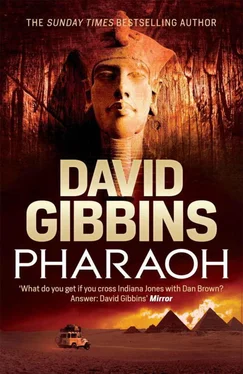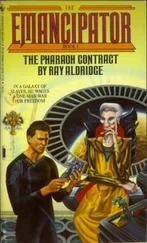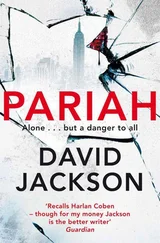His shouting drove the people to an even greater frenzy, the women ululating and the men chanting, those at the back reaching over to touch him, others from the streets around running up to join in. He felt his strength falter, and his hand began to slip. The shortest of the three Sudanese, with a corporal’s stripe on his sleeve, sauntered over and picked up the badge, turning it over and staring at it sceptically. Mayne remembered something else; he scrabbled frantically with his free hand at his belt and produced a handful of gold sovereigns, spilling some and throwing the rest through the bars, then holding on with both hands. ‘There is more,’ he yelled. ‘More gold!’
The corporal perked up, quickly collecting the coins and weighing them in his hands, then signalled the other two guards to come alongside. Just as Mayne was about to let go, the gates opened; he was dragged in and they were shut again, the soldiers beating the people back savagely with their rifle butts. The ululations turned to a low moan that increased in a crescendo and then dropped again, like a terrible sigh. The two soldiers used the flat of their rifles to push Mayne roughly between them, and then one of them pulled at his belt so that the remaining coins spilled out. They quickly picked them up while the corporal stood in front of him, turning the badge over and over in his fingers. ‘I will take this to Gordon Pasha. If he will not see you, I will throw you back to the dogs, Turk .’
He spat out the last word, and Mayne was taken aback momentarily; it was a term the dervishes used for all foreigners, yet this man knew he was English. The corporal marched off towards the palace, past two more guards and up a staircase. Mayne had to contend with the other two men now, both evidently convinced he was concealing more gold. They pushed him more roughly between them, trying to pull off his robe, and one of them cocked his rifle. Mayne made a tactical decision. He could not allow himself to die for nothing so close to his objective. He whipped out his revolver and aimed it at the head of the nearer man, holding the grip with two hands and thumbing back the hammer. ‘Drop your rifle,’ he snarled. ‘ Now. ’ The man did as he was told; the second one followed suit, and they both backed off uncertainly, glancing up to the balcony. Mayne kept the pistol trained with one hand and shook off his robe with the other. He had no need of a disguise any more, and if he was going to die here he would rather die dressed as a British officer, albeit in sandals and the dirty cotton shorts he had worn under his robe. He straightened his crumpled tunic and Sam Browne belt and waited.
A minute or so later, the corporal came back down the stairs and across the gravel forecourt towards him. ‘You can put that away,’ he said, pointing at the revolver. ‘Gordon Pasha will see you.’
Mayne remained where he was, revolver trained. He was taking no chances. Then he saw that a figure had come out on to the balcony, too far off to be identifiable but unmistakably European and wearing a uniform. He paused for a moment longer, then lowered the revolver, holstering it. The two soldiers picked up their rifles and came up to him, but the corporal waved them off towards the gate. Then he grabbed Mayne’s tunic and pulled him close. ‘There is nothing for you in there, Turk. He has nothing left to give.’ He jerked his head towards the corpses hanging from the poles, visible beyond the balustrade. ‘Those men were Mahdi spies. The Mahdi is coming at dawn. The jihad will sweep all before it, and men like you had better join it or run. Otherwise you too will end up feeding the vultures and the crocodiles.’
‘ Insha’Allah, ’ murmured Mayne.
The man stared at him, his eyes dark, unfathomable, then pulled him close, so close that Mayne could smell his breath, and whispered harshly in his ear. ‘Forty thousand angels will join us. We will descend on the city like raptors. Join us, Englishman, and you too will rise to heaven, and the light of God will shine on you for what you do here today. Now go. Insha’Allah .’
He released Mayne’s tunic, turned him around and pushed him towards the stairs. Mayne reeled. Gordon’s gateman had gone over to the Mahdi, and would surely open the gates to the angels of death when they came swooping in. He knew he had no time to lose. He tripped over the edge of a flagstone and then regained his balance, stumbling forward. Over the river and around the palace he saw only blackness. Ahead of him at the top of the stairs was a blinding orange light. He remembered what the guard had said, about the coming of the Mahdi. He knew he had to be back across the river and in position before dawn. He reached the steps and began to mount them, his heart pounding. Everything hung on what happened next.
Minutes later, Mayne was ushered by a Sudanese guard along the upper-floor corridor of the palace and into the room he had seen lit up from outside. It extended to the back wall of the palace, but the open door and corridor beyond led to a balcony overlooking the river, visible from where he stood now. Beside the door was a Remington rifle on an elaborate wooden shooting stand, aimed in the direction of Tutti island; the action was open and Mayne could see that it had been carefully cleaned and oiled. He took a few more steps inside. The room was large, the size of an English country-house drawing room, and was lit at each corner by glass-topped oil lamps on stands, the walls and ceiling above them smudged with smoke. The centrepiece was a large Ottoman-style desk set close to the back wall, its surface covered with papers and notebooks and maps, a brimming ashtray on one side giving off wisps of smoke. The room smelled strongly of cherry tobacco, and he realised that this was the source of the smell that had wafted over the riverbank earlier. But the most striking feature was the mass of artefacts laid out carefully on the floor, enough to fill a small museum: elaborate tribal clothing, including a patched jibba of the Mahdists; an extensive collection of weaponry, from leaf-bladed dervish spears and curved swords to kurbash whips and ornate flintlock long guns; beautiful hand-made pottery, wood carving and beadwork; and an array of ancient Egyptian artefacts, including small statues in blue-green faience and fragments of masonry with carvings on them.
A voice came from the door. ‘The Mahdi keeps sending me gifts.’ Mayne turned and saw Gordon. He remembered him vividly from the lectures he had attended in London several years before, but close to he was shorter, more compact. He was wearing the evening uniform of an officer of the Royal Engineers, as if he were going to dinner in the mess, complete with the insignia of the Order of the Bath and his campaign medals for China and the Crimean War almost thirty years before. He looked pale, gaunt, his curly grey hair thinning on top, but his eyes were a brilliant porcelain blue, staring intensely. He reached over and picked up an Egyptian shafti statuette with hieroglyphics on the front. ‘Do you know that for the followers of Muhammad, it is not the meaning of the word but the shape of the symbols that has significance, as well as magical powers?’
Mayne nodded. ‘I had a Dongolese guide who gave me a hejab with the prayer wrapped around an ancient Egyptian scarab. I do not believe he ever knew the name in the hieroglyphics on the scarab, though I recognised the cartouche of Akhenaten.’
‘Akhenaten,’ Gordon repeated, pausing. ‘Are you a student of the ancient Egyptians?’
‘I have a passing acquaintance with hieroglyphics.’
‘What do you think of my collection?’
‘Fascinating, sir. I’ve seen your material from China in the Museum of the Royal United Services Institute.’ Mayne pointed to a fragment of wall carving showing the distinctive crown and snake symbol of a pharaoh. ‘I’m particularly interested in ancient Egyptian antiquities in the Sudan, as they are something of a rarity, I find. I’ve been tracing them from the Egyptian border along the Nile. I believe that the pharaoh Akhenaten mounted some kind of expedition into the desert. At Semna we found a temple with a depiction of him in front of the Aten symbol of the sun.’
Читать дальше












